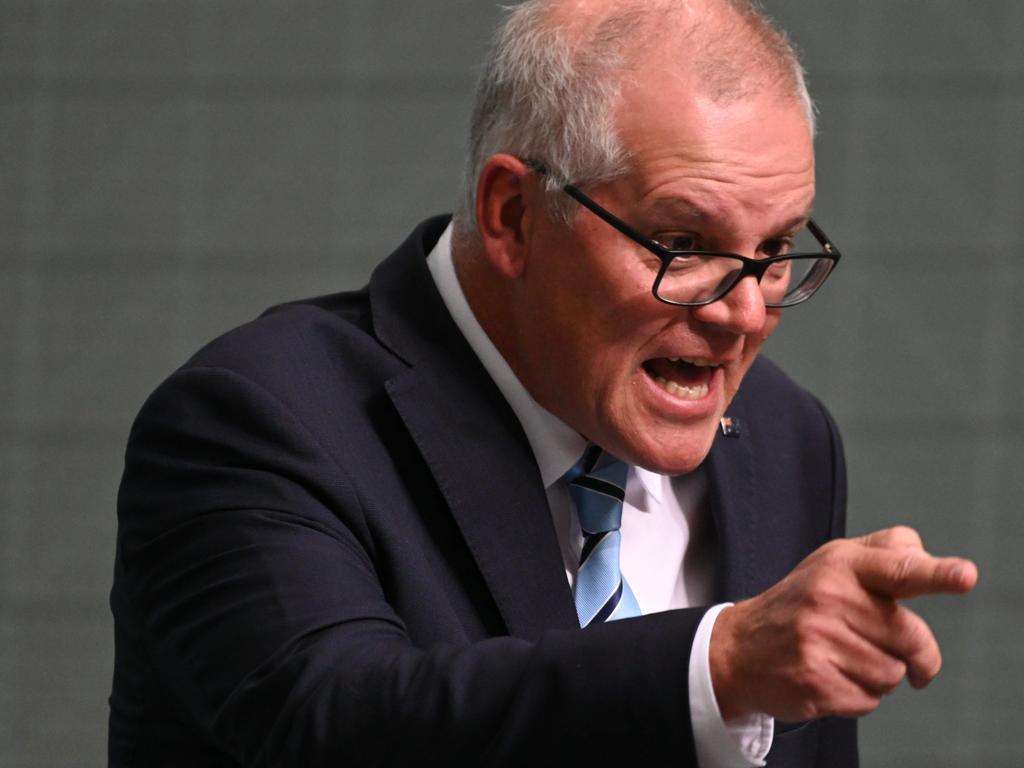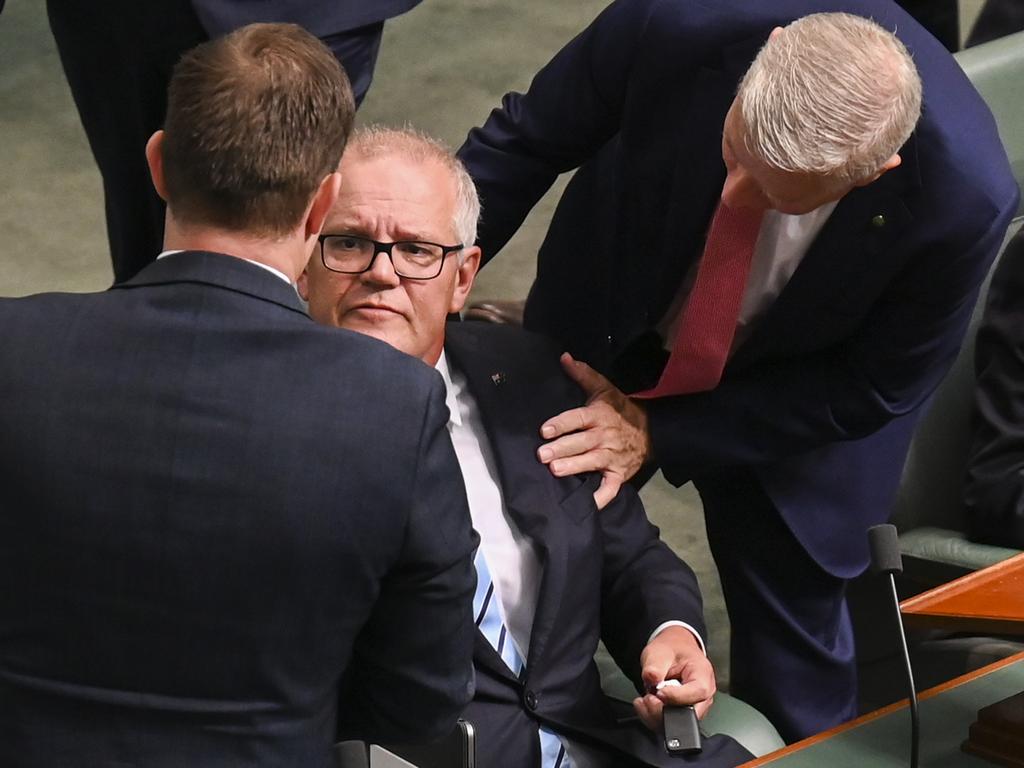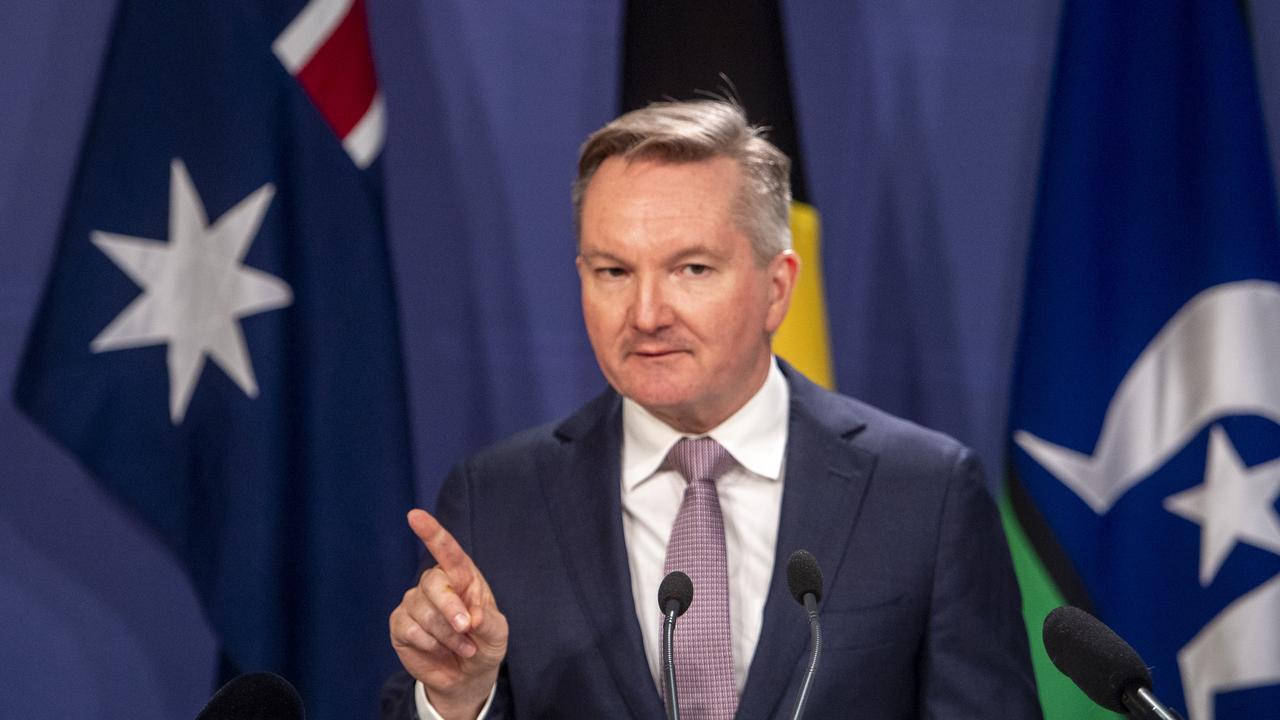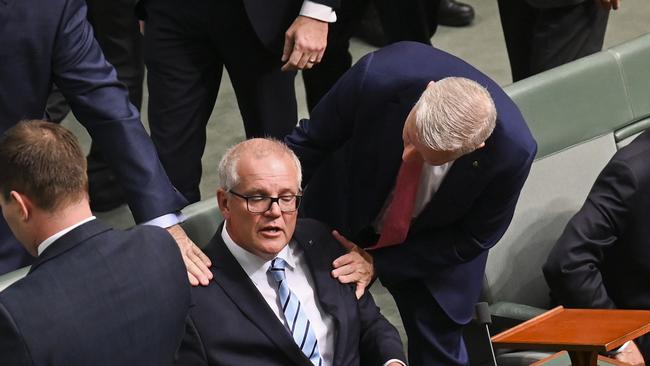
The most striking feature of Virginia Bell’s report on Scott Morrison’s appointment to administer multiple departments is the imbalance between the important new information the report presents and the inferences it is claimed to support.
That imbalance does not merely apply to the findings the report draws; it also applies to those it glosses over.
Nowhere is the contrast starker than in the discussion of Morrison’s appointment to the health portfolio. Bell, a former High Court judge, places considerable emphasis on one official’s view that the appointment was unnecessary; yet it is apparent that official’s assessment was not shared by his colleagues or by the health minister and his most senior medical advisers.
Moreover, even had the appointment been unnecessary, that scarcely means it was illegitimate. Indeed, Bell herself never suggests it was, in the circumstances, unwarranted. But she seems reluctant to make that conclusion explicit – that is, to clearly state that the decision was understandable, albeit not imperative.

There are, however, no such compunctions when it comes to condemnation. Thus, the report rightly notes that few consequences, if any, flowed from the appointments, regardless of how “bizarre” or “poorly thought through” they were.
In effect, with the exception of the resources portfolio – where the appointment involved a specific decision – Morrison did not intrude into the administration of any of the departments to which he was appointed.
And the report does not contradict the view of the then secretary of the Department of Prime Minister and Cabinet that there was no evidence of cabinet government being displaced, much less of a “systemic or creeping acquisition of sole power”.
On the contrary, the report states that the practical implications of the appointments were “limited”, accepts their characterisation as dealing with a “dormant contingency”, and describes dire effects they might have caused as “entirely theoretical”.
“It is clear,” it concludes, “that, aside from the PEP-11 decision, Mr Morrison did not exercise any of the powers or functions, or discharge any of the duties, conferred or imposed on him by legislation not administered by the minister not administering PM&C”.
That makes it hard to understand quite how the failure to disclose the appointments could, in any practical sense, have undermined parliamentary accountability, as the report contends.
The ministers actually administering the relevant departments were accountable to parliament at all times; and with respect to the only instance of the powers being used, the report finds that “it is difficult to describe the (PEP-11) decision as having been made by Mr Morrison in secret”, the inference being that information was not withheld from parliament and the public.
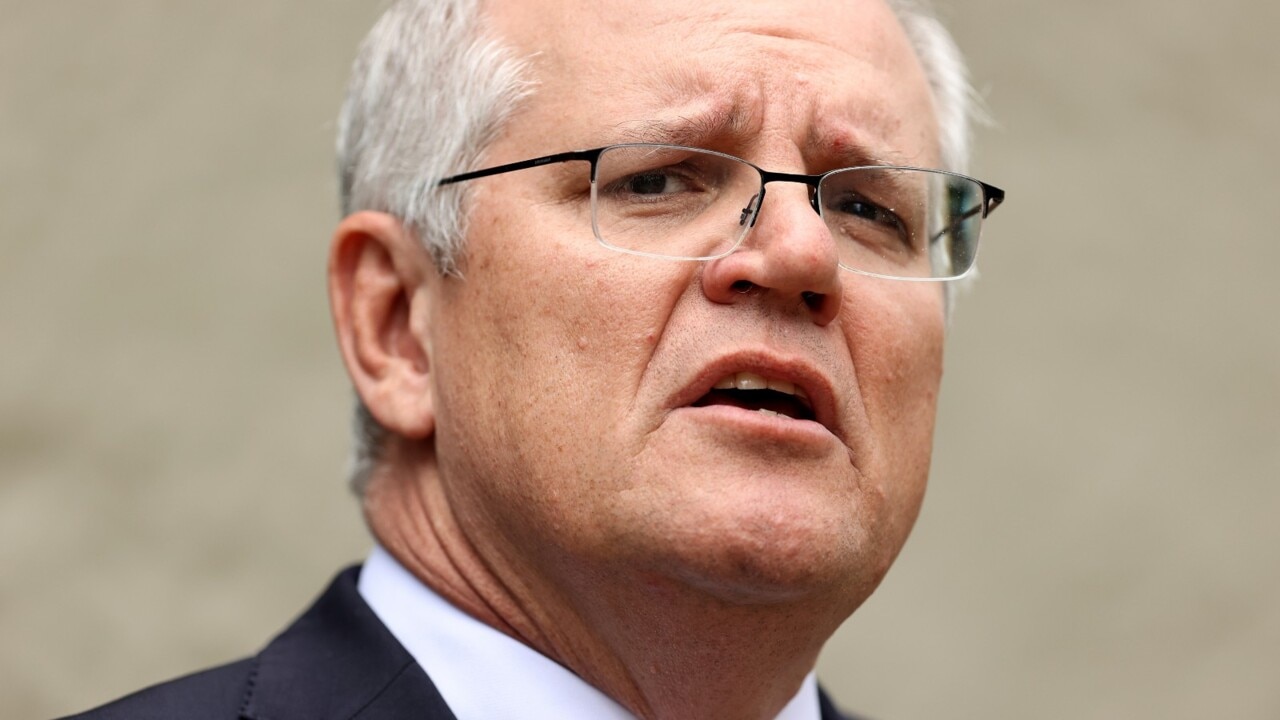
The report’s claims of adverse impacts on confidence in government are even harder to accept.
Bell states that she has not attempted to “make any empirical assessment of the extent to which public confidence was in fact affected by the appointments”.
Instead, in drafting of inspired vagueness, the paragraph that sets out the basis for the claimed adverse impacts on confidence rests on a lengthy string of “mays”, with the word appearing four times in three consecutive sentences, each describing the hypothetical reaction of a “reasonable member of the public” on learning that Morrison had the “capacity” (in italics) to “exercise those powers”.
Yet the conditional qualifier, which quite properly attaches to purely hypothetical reactions, vanishes two paragraphs later, where it is asserted as an unequivocal fact that “the secrecy with which the appointments had been surrounded was corrosive of trust, and thus confidence, in government”.
Even putting aside that assertion’s lack of empirical basis – confidence in government, although it declined this year, remained high by historical standards – it does not follow with any degree of inevitability from the material the report sets out.
It is true that Morrison’s “dormant” powers might worry a member of the public. But it is every bit as true that the appointments – which, the report accepts, were intended to apply to “ministers’ exercise of statutory power in cases that were not subject to cabinet oversight” – might reassure the public that sweeping powers, such as those under the biosecurity legislation, would not be vested in a single person.
That a state of emergency was in force, with civil liberties suspended, draconian restrictions on every aspect of daily life and unprecedented sums of public money being expended, surely underscores that possibility; but while the report contemplates the risk of confidence being harmed, it never mentions the scope for it to be bolstered.
Clearly, how much weight should be placed on each of those possibilities is a matter of judgment. However, to ignore entirely one side of the balance could plausibly be viewed as jettisoning seriousness and objectivity.
The report’s findings therefore rest on shaky foundations, as do its recommendations. There is a compelling case for tidying up the administrative arrangements for notification of ministerial appointments; it is, however, an open question whether there are no circumstances in which disclosure would be undesirable.
It is, for example, not unreasonable to believe, as Morrison seems to have, that immediate notification of his appointment to the health portfolio just as a frightening pandemic was getting under way would have rattled an edgy public. Yet the proposed legislation specifically rules out exceptions.
None of that justifies the lack of disclosure, particularly to close cabinet colleagues.
In the end, however, what the report fails to capture is the dramatic context in which these events unfolded.
Carl von Clausewitz famously referred to the “fog of war”, in which “everything is simple and nothing is easy”. As that fog descended, decision-making was scarcely a carefully plotted sequence of decisions, intended to install a “secret government” worthy of QAnon’s fevered conspiracy theories.
Rather, it was a sporadic, sometimes chaotic, process in which the urgent readily displaced the important, and even things that plainly should have been done fell by the wayside.
Moreover, as the public servants Bell interviewed stressed, the focus was less on procedure than on responding to the pandemic.
There would have been a great deal to learn from a probing, balanced and rigorous examination of the strengths and weaknesses, successes and failures, of that response, both at a commonwealth and state level.
Unfortunately, such an investigation does not seem to be on the government’s agenda.
There is instead a distinct whiff of burning in the air, as the report is used and abused to fuel the pyre on which Morrison – who bore the brunt of managing the pandemic – is to be incinerated. That is, no doubt, in the nature of Australian politics.
But far from enhancing public trust in our institutions, it can only tarnish it further.


